Results
-
 £144.99
£144.99Scottish Dances - Peter Martin
Scottish Dances is based on three Scottish traditionals: Cock of the North, The Bonnie Bank's O'Loch Lomond and Marie's Wedding. I. Cock of the North's name is used for multiple things or events. For example for a locomotive to a famous, it seems, delicious liqueur, and rallies to snowboard competitions. Furthermore is "Cock O' the North " a nickname of a famous Duke. (The 4th Duke of Gordon). In this composition Cock of the North (a Jig) is a traditional Scottish bagpipe tune, regularly played on tattoos by Pipe Bands. Not infrequently the drummers sing the text. Auntie Mary, had a canary, Up the leg of her trousers While she was sleeping Iwas peeping Up the leg of her trousers. II. " The Bonnie Bank's O'Loch Lomond " is about a sad story that took place during an revolt against the British. In 1745 Bonnie Prince Charlie had to retreat. Two of his men were captured. One was convicted and executed, while the other was released. The spirit of the executed soldier would arrive in Scotland via the 'low road' (underworld) before his companion, who had still a long way to go. You'll take the high road And I'll take the low road And I'll be in Scotland afore ye But me and my true love will never meet again On the Bonnie Bonnie Banks of Loch Lomond III. In a Scottish wedding, after the official ceremonies, there is often danced. This is called a ceilidh. For this we use traditional Scottish music such as "Marie's Wedding '. Mid dance we go back to the church, where a lovely song in honor of the couple sounds. Marie's Wedding has been recorded by Van Morrison (among many others). Step we gaely, on we go, heel for heel and toe for toe Arm and arm and on we go, all for Marie's wedding
Estimated dispatch 7-14 working days
-
 £102.99
£102.99The Best of Helene Fischer
With hits such as Atemlos, Helene Fischer pulls in not only pop fans but also a broad audience under her spell. Apart from this smash hit, this medley also contains Marathon, So kann das Leben sein, and Fehlerfrei from thecurrent album Farbenspiel as well as Und morgen Frh kss ich dich wach, which is an absolute crowd favourite selected from the album Von hier bis unendlich. A medley they're sure to sing along to!
Estimated dispatch 7-14 working days
-
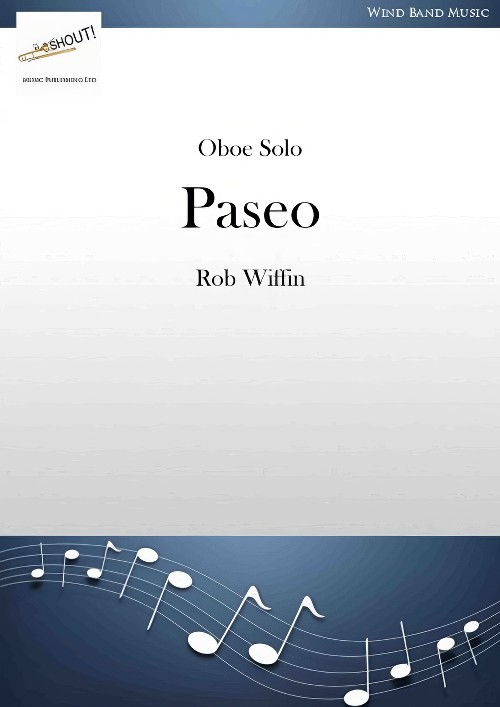 £35.95
£35.95Paseo (Oboe Solo with Concert Band - Score and Parts) - Wiffin, Rob
Paseo is a Spanish word for a leisurely walk or stroll. The soloist takes the musical line for a walk with no great sense of hurry. There is one moment where the pleasantness of the stroll is threatened but it quickly passes and the good mood is resumed. Technically this needs a good sense of cantabile and control over the range from low D to D two octaves higher.In order to allow the oboe soloist to sing through without fighting the accompaniment, the saxophones, trumpets and percussion have been omitted.Duration: 4.15
Estimated dispatch 7-14 working days
-
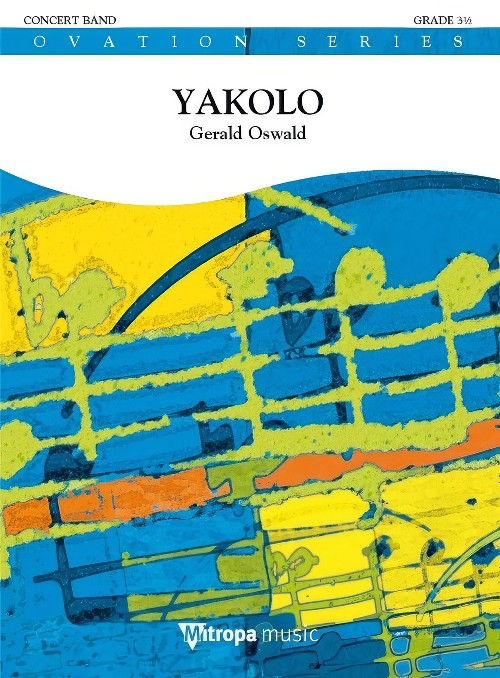 £84.99
£84.99Yakolo (Concert Band - Score and Parts) - Oswald, Gerald
Yakolo is originally a dance song from Africa. It reflects the people of Africa's zest for life, following the maxim Come and join us!. In this work, the call and response principle is featured as a trademark element of traditional African music. The rhythmic melodies invite listeners to sing and dance along and thus give shape to the African art of celebrating together. The repeating themes will be sure to put a smile on everyone's face!Duration: 3.30
Estimated dispatch 7-14 working days
-
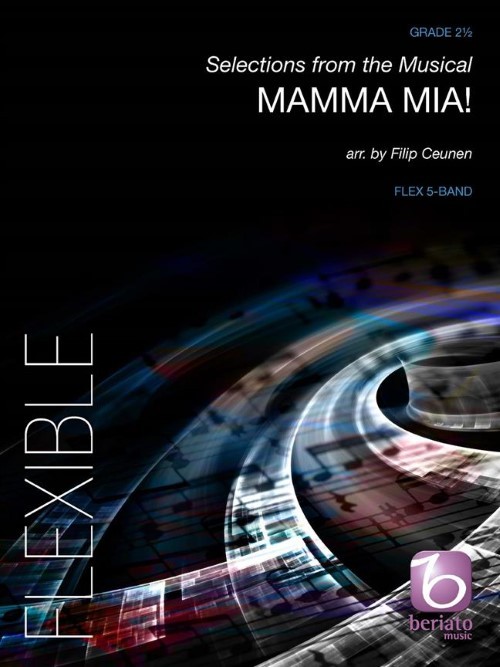 £84.99
£84.99Mamma Mia!, Selections from (Flexible Ensemble - Score and Parts) - Ceunen, Filip
Some bands and their music are everlasting. A good example of such a group can be found in ABBA! The fact that a popular musical was based on ABBA songs is the best proof you can get. Even today, both young and old sing along to the international hits of this Swedish group! Filip Ceunen took the very best songs and created an excellent and playable medley scored for flexible ensemble. Be prepared for an audience singing or humming along with such classic songs as 'Mamma Mia', 'Dancing Queen', 'Fernando', 'The Winner Takes It All', and of course 'Money, Money, Money'.Duration: 5.00
Estimated dispatch 7-14 working days
-
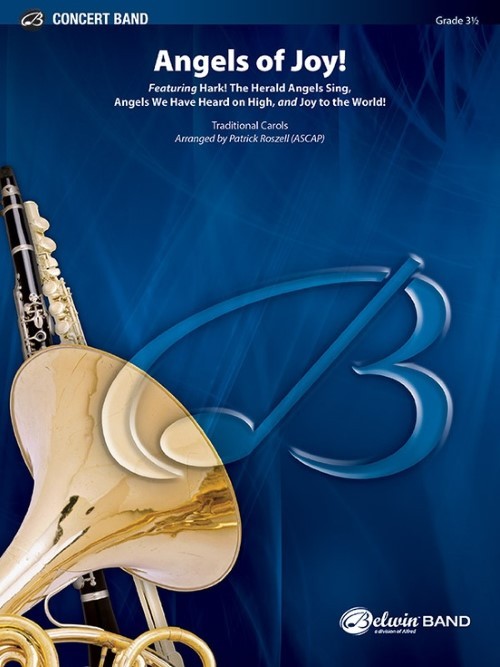 £64.95
£64.95Angels of Joy! (Concert Band - Score and Parts) - Roszell, Patrick
A fantastic holiday concert opener or encore. This arrangement features three beloved traditional carols, Hark! The Herald Angels Sing, Angels We Have Heard on High, and Joy to the World! High energy holiday programming. Duration: 2:45
Estimated dispatch 7-14 working days
-
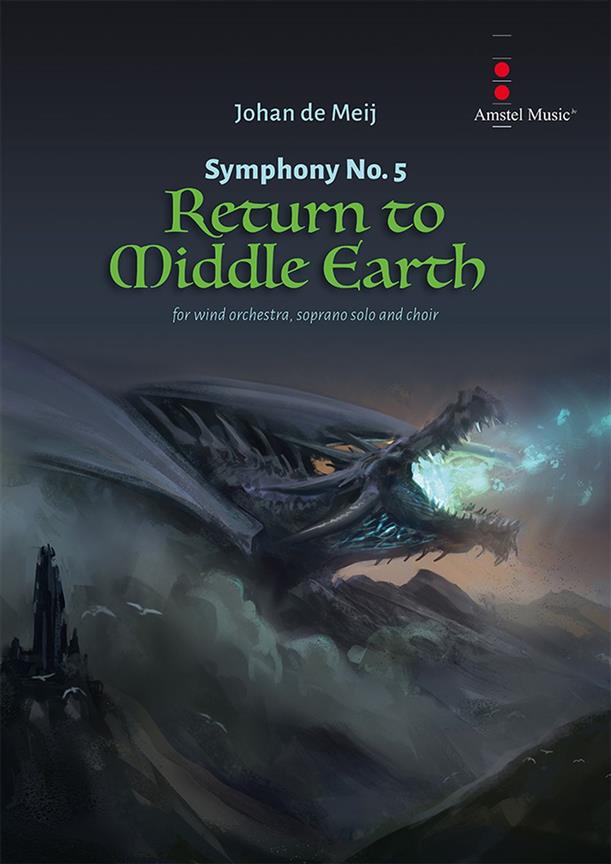 £615.50
£615.50Symphony No.5, Return to Middle Earth (Concert Band - Score and Parts) - De Meij, Johan
For Wind Orchestra, Soprano Solo and ChoirAfter 30 years, Johan de Meij revisits Middle-Earth, the enchanting mythological world of J.R.R. Tolkien, with his spectacular Symphony No. 5 Return to Middle Earth. Although there are thematic reminiscences of his monumental first Symphony The Lord of the Rings from 1988, De Meij is putting a completely different musical vibe into his new symphony. There is an important role for a solo soprano and mixed choir: they sing in Ilkorin, one of the Elvish languages of Middle-Earth. The Orcs and other thugs also take the stage, but they only use raw screams in their own language, also known as black speech.
Estimated dispatch 7-14 working days
-
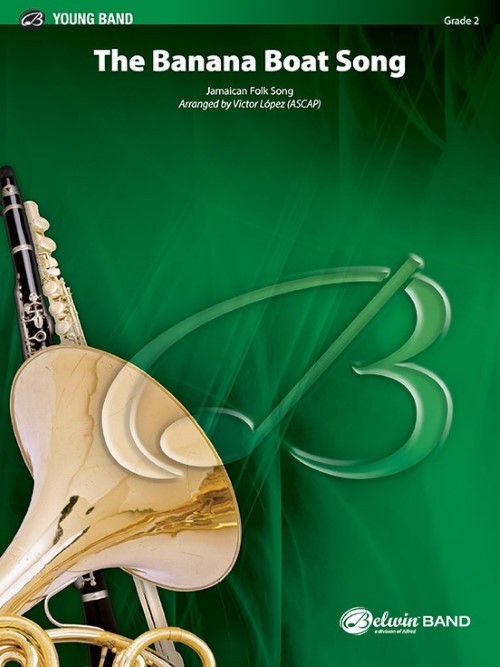 £55.50
£55.50The Banana Boat Song (Concert Band - Score and Parts) - Lopez, Victor
Invite everyone to sing along with this rhythmically exciting and easy-to-play selection. Don't be surprised if you see the audience dancing in the aisles with this familiar and favourite upbeat melody. Simply delightful!Duration: 2:45
Estimated dispatch 7-14 working days
-
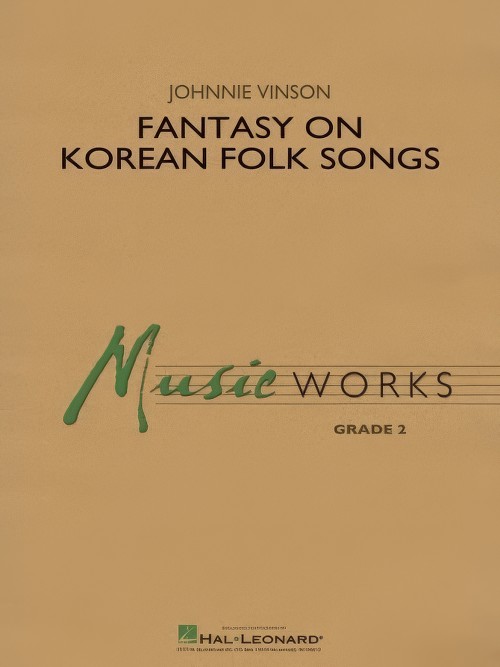 £57.50
£57.50Fantasy on Korean Folk Songs (Concert Band - Score and Parts) - Vinson, Johnnie
Exploring some of the most well-known traditional folk tunes from Korea, here is an appealing and well-paced suite for young players. "Let's Sing and Dance" starts slowly then gradually speeds up similar to how it is usually sung. "The Gate" is a song and game played by Korean children, and this is followed by the beautiful ballad "Bellflowers." Finally "The Palace" completes the set in a bold and optimistic style. Duration: 4.00
Estimated dispatch 7-14 working days
-
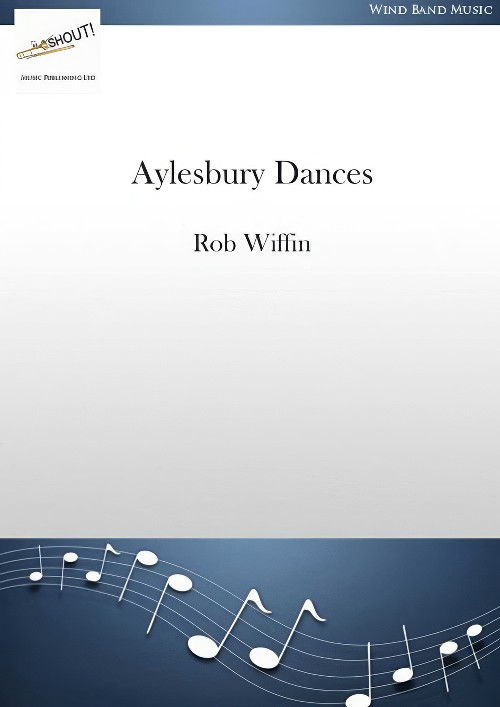 £69.95
£69.95Aylesbury Dances (Concert Band - Score and Parts) - Wiffin, Rob
The suite Aylesbury Dances was commissioned by the Aylesbury Concert Band to mark the occasion of their 25th Anniversary in 2019. Its three movements depict different aspects of Aylesbury: I. Pavane: The Town - Having read something of the town's history and its architecture I decided I wanted to write something ceremonial with the feel of music from Tudor times. Aylesbury was given its charter and borough status in 1554 by Mary Tudor so I took that as my starting point but then added some harmony that moves forward in time. This fits with the town's motto: Semper Prorsum (Always forward) and also with the Band's evolution from Aylesbury Town Band to Aylesbury Community Concert Band to Aylesbury Concert Band. The music can be defined as a pavane, or a cortege. The sense of procession is slightly disturbed by a 'Blue Leanie' moment. The Blue Leanie is an iconic Aylesbury building, an oblique rhombic prism which stands at an angle of 17% inclination. I took a quaver out of the time signature (I know the maths don't work!) to reflect this and added some bluer harmony at that point. This opening movement gives a sense of the grandeur and heritage of Aylesbury town and a chance for my friends from the brass section to warm up! II. Siciliana: Waterside - To balance the outer two movements, the middle movement of the suite has a slow lilting 6/8 rhythm. It is in the style of a Siciliana, a dance form originating in the baroque era. It is a graceful, tender and melancholic dance, cast here in a minor key and featuring the dark voice of the cor anglais. The Siciliana was often linked with pastoral scenes and Aylesbury itself sits amid some beautiful countryside. It may, therefore, seem a bit of a stretch to call this movement 'Waterside', especially as Aylesbury is so far from the sea, but the town has a theatre of that name and that was the genesis for this particular music. There is a statue of Ronnie Barker in the grounds of the Waterside theatre as he started his career in repertory theatre in Aylesbury, so I included a fleeting reference to the theme music of the comedy programme 'Open all Hours'. III. Frolic: Ducks in a Row - It was impossible to write a piece connected with Aylesbury without considering the famous Aylesbury ducks. Duck rearing was a major industry in the town in the 19th century. The white Aylesbury Duck is a symbol of the town, appearing on its coat of arms and in the logo of the Aylesbury Concert Band! This movement is all about trying to get the little darlings in a row so they can sing their 'Duck Chorus' together but they keep on scattering, flying off or swimming away as quickly as they can manage. It's a bit like watching ducks disperse when my dog jumps into the stream after them. Eventually we get more of them in a row - even though they protest. Hidden amongst the ducks is a reference to Erica Miller, saxophonist and chairman of the band, and there's even a veiled reference to a shark in the hope of getting them out of the water. Ducks in a Row is a fun romp bringing this suite of Aylesbury Dances to a suitably celebratory conclusion.- Rob Wiffin.Duration: 9.15
Estimated dispatch 7-14 working days
